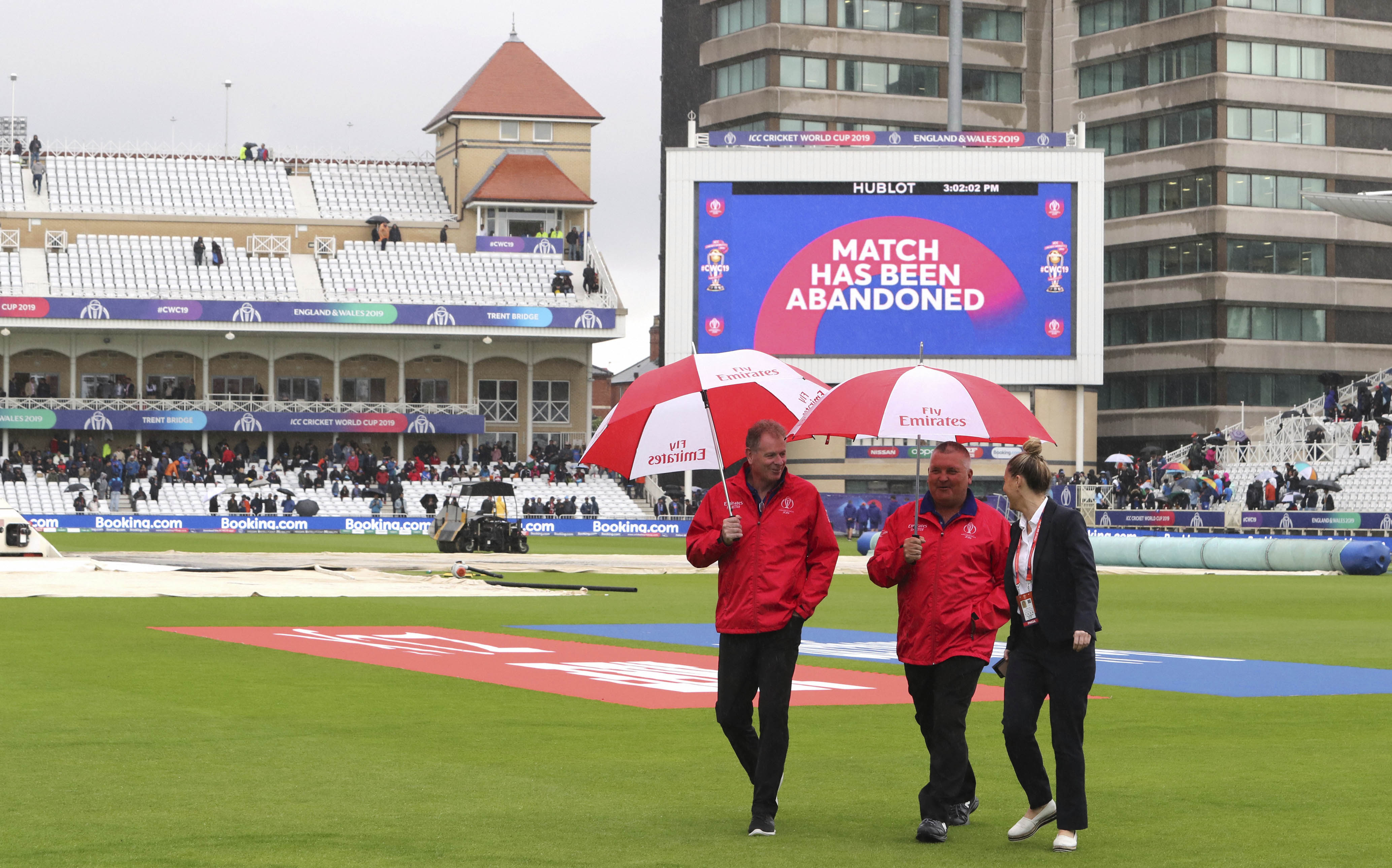
Does ICC have any rule to prevent matches getting washed out?

With Thursday’s (June 13) India vs New Zealand match being abandoned, the count of matches being washed out in the ongoing ICC World Cup now stands at four.
While the weather in England continued to be spoilsport, Thursday’s washout promoted India to number 3 on the points table pushing England down to rank 4. However, the Kiwis are still on top.
As the upcoming matches are too at a risk of being washed out, including that of Sunday’s India vs Pakistan match, teams are rather busy calculating how the matches getting abandoned will affect their standings.
It's still drizzling in Nottingham and the next inspection will be at 12:30PM.
Follow #INDvNZ blog for live updates ?https://t.co/sbKb0rLYkL pic.twitter.com/u34154Pgl0
— Cricket World Cup (@cricketworldcup) June 13, 2019
Amidst all these, one may asked why the International Cricket Council (ICC) does not have any reserve days for the games. Here’s what the ICC rule book say about rain affected matches and the policy of reserve days:
When is a match abandoned?
Every match gets eight hours’ time from the official start time to decide on the course of the action if it is interrupted due to rain or other circumstances.
This edition of the World Cup, most of the matches are scheduled to start play at 3 PM (IST) and finish by 11:30 PM. If any match is interrupted in between due to rain, the umpires have till 11:30 PM to take a call.
Matches are abandoned if the weather conditions do not improve during these eight hours. Meanwhile, the umpires undertake regular inspections to check the ground conditions, to decide the further course of action.
No reserve days at group stage due to tight schedule

Due to tight schedule, the ICC has not kept any reserve day for the group-stage matches. This is despite the forecast of rains in England, the hosts this edition.
In such a scenario, both the teams share a point each if a match is abandoned in the group stage without a single ball bowled or even before toss. The Duckworth-Lewis-Stern (DLS) method is used to determine the fate of the match if it is abandoned in its second innings.
Considered as the most accurate way to give an outcome, the DLS method is used to calculate the target score of the team batting second when the match gets interrupted due to weather or other circumstances. If the team has scored more runs than the target set by DLS calculation, the team is declared a winner.
According to the ICC rule book, reserve days are kept only for the semi-final and final matches. When such a match gets interrupted, it continue again on the reserve day. If a semi-final match gets washed out, the team that ranked higher during the group stage qualifies for the final.
In the worst case scenario if the reserve day for the final is also washed out, the two finalist teams share the trophy.
Super over enters World Cup
While the super over rule is usually seen in international T20 matches, it has been introduced in the World Cup as well, to help decide the winner of a rain-affected match in the semi-final or final.
In a super over, just like in the Indian Premier League, each team gets one over to play and set a target for the other. This is the shortest format of a cricket match on its own.


